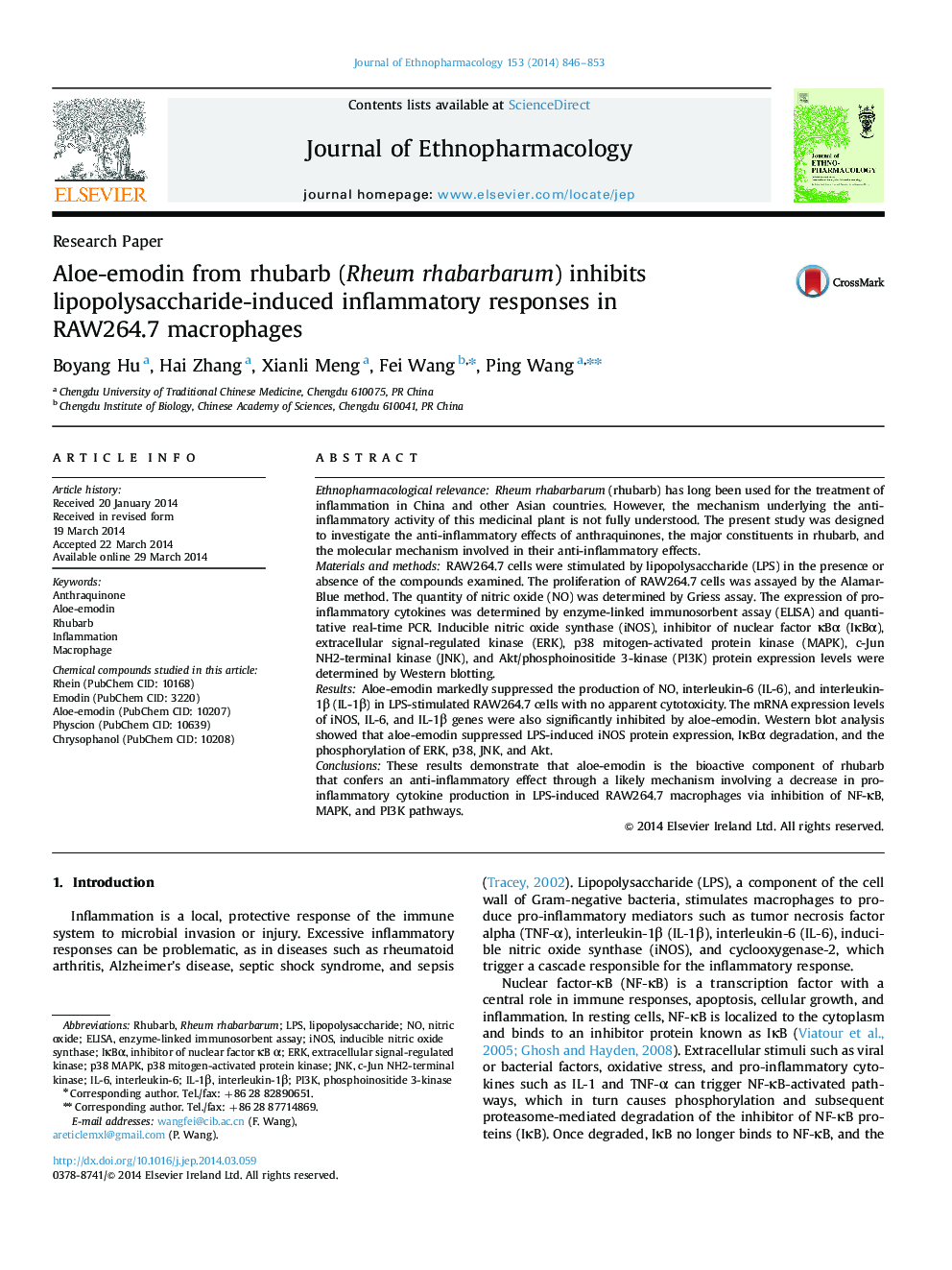| کد مقاله | کد نشریه | سال انتشار | مقاله انگلیسی | نسخه تمام متن |
|---|---|---|---|---|
| 2545114 | 1123934 | 2014 | 8 صفحه PDF | دانلود رایگان |

Ethnopharmacological relevanceRheum rhabarbarum (rhubarb) has long been used for the treatment of inflammation in China and other Asian countries. However, the mechanism underlying the anti-inflammatory activity of this medicinal plant is not fully understood. The present study was designed to investigate the anti-inflammatory effects of anthraquinones, the major constituents in rhubarb, and the molecular mechanism involved in their anti-inflammatory effects.Materials and methodsRAW264.7 cells were stimulated by lipopolysaccharide (LPS) in the presence or absence of the compounds examined. The proliferation of RAW264.7 cells was assayed by the Alamar-Blue method. The quantity of nitric oxide (NO) was determined by Griess assay. The expression of pro-inflammatory cytokines was determined by enzyme-linked immunosorbent assay (ELISA) and quantitative real-time PCR. Inducible nitric oxide synthase (iNOS), inhibitor of nuclear factor κBα (IκBα), extracellular signal-regulated kinase (ERK), p38 mitogen-activated protein kinase (MAPK), c-Jun NH2-terminal kinase (JNK), and Akt/phosphoinositide 3-kinase (PI3K) protein expression levels were determined by Western blotting.ResultsAloe-emodin markedly suppressed the production of NO, interleukin-6 (IL-6), and interleukin-1β (IL-1β) in LPS-stimulated RAW264.7 cells with no apparent cytotoxicity. The mRNA expression levels of iNOS, IL-6, and IL-1β genes were also significantly inhibited by aloe-emodin. Western blot analysis showed that aloe-emodin suppressed LPS-induced iNOS protein expression, IκBα degradation, and the phosphorylation of ERK, p38, JNK, and Akt.ConclusionsThese results demonstrate that aloe-emodin is the bioactive component of rhubarb that confers an anti-inflammatory effect through a likely mechanism involving a decrease in pro-inflammatory cytokine production in LPS-induced RAW264.7 macrophages via inhibition of NF-κB, MAPK, and PI3K pathways.
Figure optionsDownload high-quality image (189 K)Download as PowerPoint slide
Journal: Journal of Ethnopharmacology - Volume 153, Issue 3, 14 May 2014, Pages 846–853